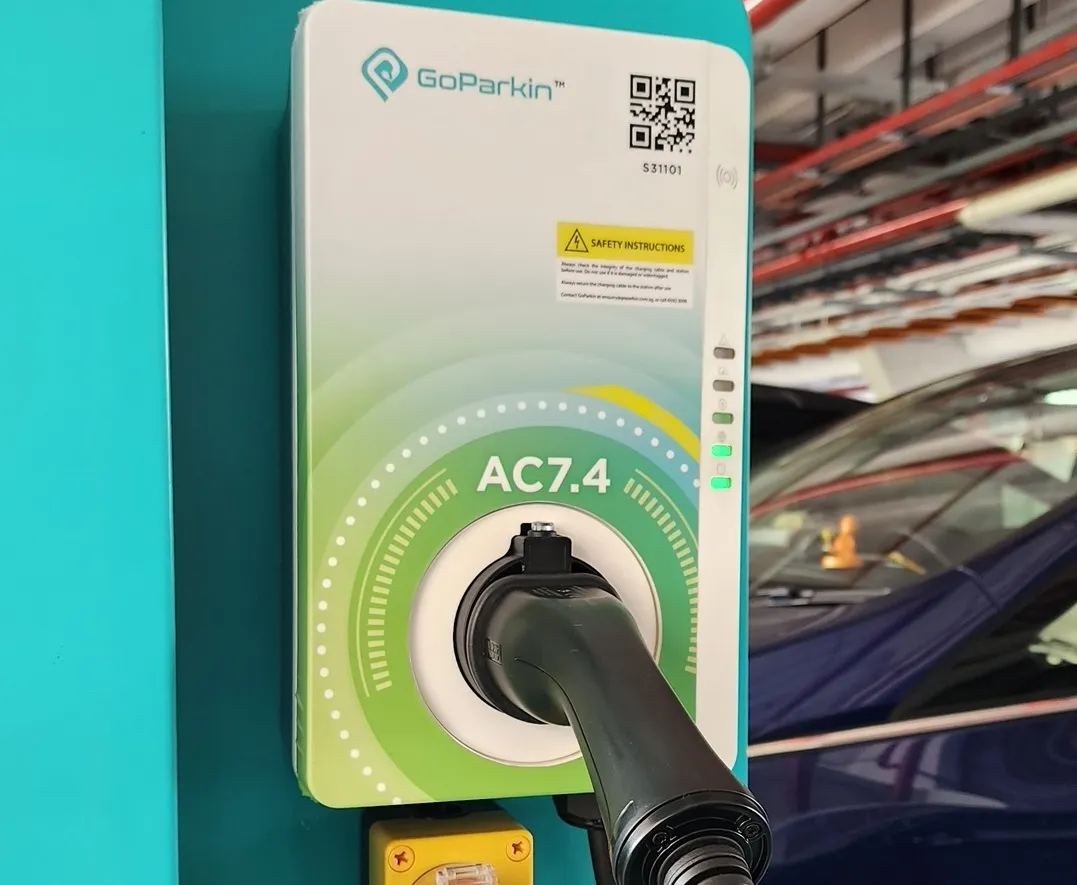Volvo Car Corporation is participating in an inductive charging project. Together with Belgian technological and development specialists Flanders' Drive and others, Volvo is developing systems and methods that need neither power sockets nor charging cables. With inductive charging, energy is transferred wirelessly to the car's battery via a charging plate buried in the road surface.
April 25, 2012
Read time: 3 mins
RSS609 Volvo Car Corporation is participating in an inductive charging project. Together with Belgian technological and development specialists Flanders' Drive and others, Volvo is developing systems and methods that need neither power sockets nor charging cables. With inductive charging, energy is transferred wirelessly to the car's battery via a charging plate buried in the road surface.
"The aim is naturally that it should be as convenient as possible to own and use an electric car," explains Johan Konnberg, project manager from the Special Vehicles division of Volvo Car Corporation. A Volvo C30 Electric will be delivered to Flanders' Drive on May 19 to be modified for inductive charging. The handover also marks the formal starting signal for the project, which goes under the name of CED (Continuous Electric Drive). Other participants in addition to Volvo Car Corporation and Flanders' Drive, which is owned by the Belgian state, are bus manufacturer Van Hool and tram manufacturer513 Bombardier.
In inductive charging, a charging plate is buried in the ground, for instance in the driveway at home where the car is parked. The charging plate consists of a coil that generates a magnetic field. When the car is parked above the plate, energy from the plate is transferred without physical contact to the car's inductive pick-up. The energy that is transferred is alternating current. This is then converted into direct current in the car's built-in voltage converter, which in turn charges the car's battery pack. Charging a battery pack of the size fitted to the Volvo C30 Electric, 24 kWh, is expected to take about an hour and twenty minutes, if the battery is entirely discharged. The charging system to be evaluated is dimensioned for 20 kW.
Several car makers and technology companies are conducting research into this area but as yet there are no car manufacturers that can offer the market a finished product. "There is not yet any common standard for inductive charging," says Johan Konnberg. He emphasises the importance of being involved in development and learning about the technology in order to build up a solid bank of expertise in this area.
"One aspect of this project is to integrate this technology into the road surface and to take energy directly from there to power the car. This is a smart solution that is some way into the future," concludes Konnberg.
"The aim is naturally that it should be as convenient as possible to own and use an electric car," explains Johan Konnberg, project manager from the Special Vehicles division of Volvo Car Corporation. A Volvo C30 Electric will be delivered to Flanders' Drive on May 19 to be modified for inductive charging. The handover also marks the formal starting signal for the project, which goes under the name of CED (Continuous Electric Drive). Other participants in addition to Volvo Car Corporation and Flanders' Drive, which is owned by the Belgian state, are bus manufacturer Van Hool and tram manufacturer
In inductive charging, a charging plate is buried in the ground, for instance in the driveway at home where the car is parked. The charging plate consists of a coil that generates a magnetic field. When the car is parked above the plate, energy from the plate is transferred without physical contact to the car's inductive pick-up. The energy that is transferred is alternating current. This is then converted into direct current in the car's built-in voltage converter, which in turn charges the car's battery pack. Charging a battery pack of the size fitted to the Volvo C30 Electric, 24 kWh, is expected to take about an hour and twenty minutes, if the battery is entirely discharged. The charging system to be evaluated is dimensioned for 20 kW.
Several car makers and technology companies are conducting research into this area but as yet there are no car manufacturers that can offer the market a finished product. "There is not yet any common standard for inductive charging," says Johan Konnberg. He emphasises the importance of being involved in development and learning about the technology in order to build up a solid bank of expertise in this area.
"One aspect of this project is to integrate this technology into the road surface and to take energy directly from there to power the car. This is a smart solution that is some way into the future," concludes Konnberg.







